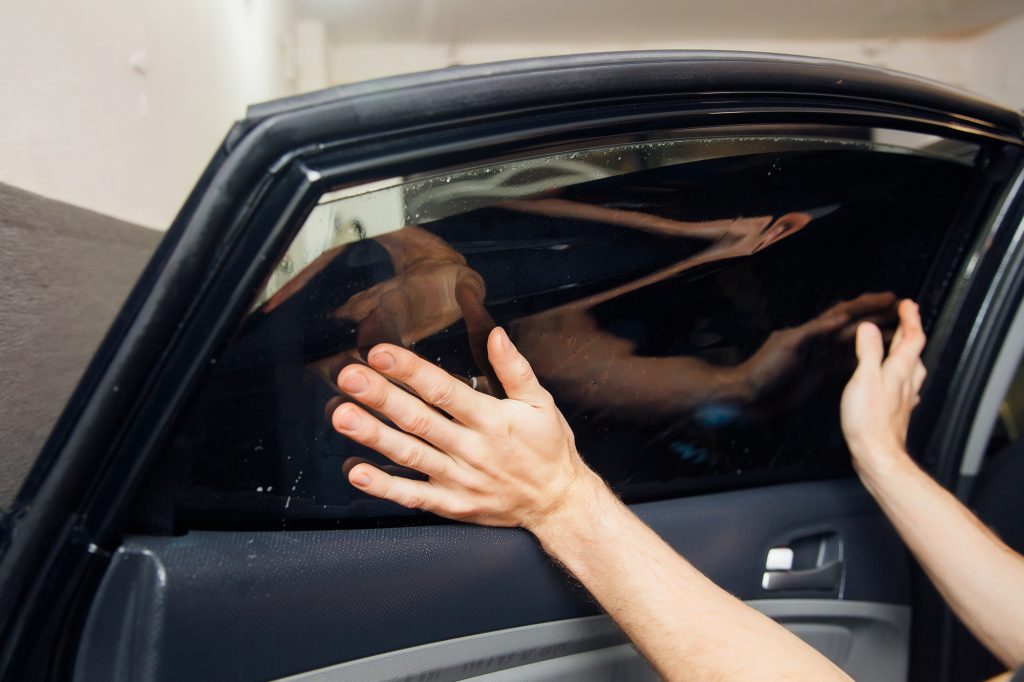
Did you know that investing in window tint will help you block up to 99.9% of ultraviolet rays from entering your vehicle and harming your skin and your car’s interior?
With benefits like that, it is no surprise that window tinting is growing increasingly popular among car owners. But is window tint legal? How dark of a window tint can you get?
Before investing money in window tint for your car you need to check out the window tint laws in your area. This will not only save you money, but it will also save you unwanted attention from the law and the possibility of tint removal.
Continue reading to learn about window tint legality in your area and how to comply with the law.
Is Getting Window Tint a Good Idea?
Window tint is a layer of film that goes over your car’s windows to add to the privacy and security of your vehicle while protecting the interior and your passengers from the ultraviolet rays of the sun.
The window tint has the added benefit of improving the look and aesthetics of your car and it protects your passengers in the case of broken glass during a car accident.
Some cars come straight from the manufacturer with window tint installed on the windows. When this is the case, the manufacturer is careful to stay within the window tint laws near me.
Window tinting is also a very popular option for aftermarket upgrades among car owners, like Formula One Window Tint. Aftermarket tint is usually handled by private window tint companies. This is where you could run into problems.
If you choose to get aftermarket window tints, be sure to ask the tint installation company “Are window tints legal that are this level of darkness?”
Why Are There Window Tint Laws?
Many people worry about the legality of their window tint when they decide to move forward with getting them for their vehicle. It is a wise move to do some research and check the percentage that is legally allowed on your vehicle before purchasing anything.
Most states have laws that limit the darkness of window tint on your vehicle. Those laws limit the darkness on the front passenger windows as well as the rear passenger windows and back window.
A big reason why there are window tint laws is for legal purposes. It makes it difficult to identify people in a vehicle and puts law enforcement in a compromised position when pulling over a vehicle that they can’t see inside of.
It is also for safety reasons when it comes to the driver and passengers. Dark window tint makes it difficult to see out of the vehicle. This is especially true during nighttime. It creates a dangerous situation for you as well as those around you.
Does the U.S. Allow Window Tinting?
The short answer to this question is “yes”. Window tinting is allowed in the United States but the amount of tint is different in each one of the fifty states.
While some states like Florida allow for very dark tint on all windows except for the windshield, other states like Pennsylvania allow for almost zero darkness when it comes to window tint.
The law in each state is determined by the percentage of light that your window tint allows to pass through the window. This percentage also indicates how much you’re able to see out the windows as a driver or passenger inside of the vehicle.
Are Limousine Tints Legal?
Limos are notorious for having extremely dark window tint for the passengers. Some states do not allow this level of tint, such as the state of California. In California, front windows aren’t allowed to be tinted further than 70 percent.
In other states, front and rear windows are allowed to be tinted to a darkness that is similar to what you’d see on a limousine’s windows.
Are Windshield Tints Legal?
While it is illegal to tint the entire windshield, most states have a law in place that dictates how much window tint is within the law for your vehicle.
The amount of tint allowed is usually somewhere between four inches down from the top to the AS-1 line on the windshield. This ensures that you have an adequate area on your windshield to see out of but still protects you from the rays of the sun and any glare on the road.
As with other types of window tint for cars, it is important to research the legal amount of tint for the windshield that is allowed in your state before moving forward with purchase and installation.
What Happens If Your Window Tint Is Too Dark?
The darkness of your window tint is regulated by the state that you live in and that your car is registered in. If your window tint is darker than the law allows then law enforcement is likely to pull you over and test the light transmittance to see how illegal it is.
It is normal for the law enforcement officer to issue a citation for illegal window tint. The first time it happens you’ll likely be issued a small fine used as a warning to remove your illegal window tint.
If you don’t remove your window tint and get pulled over for it again, you’ll be facing a much more severe fine and law enforcement will remove your window tint for you. This has the additional drawback of then having to pay for legal replacement window tint on top of the fine.
Get Your Window Tint Today
Window tint is a great addition to any vehicle, but before you move forward you should learn the window tint laws in your area. This way you can invest in window tint that won’t put you on the wrong side of the law.
This saves you money and a lot of hassle in the long run, and it will keep you and your passengers safe.
For more great articles about vehicles and vehicle repair be sure to explore our other blog posts!




